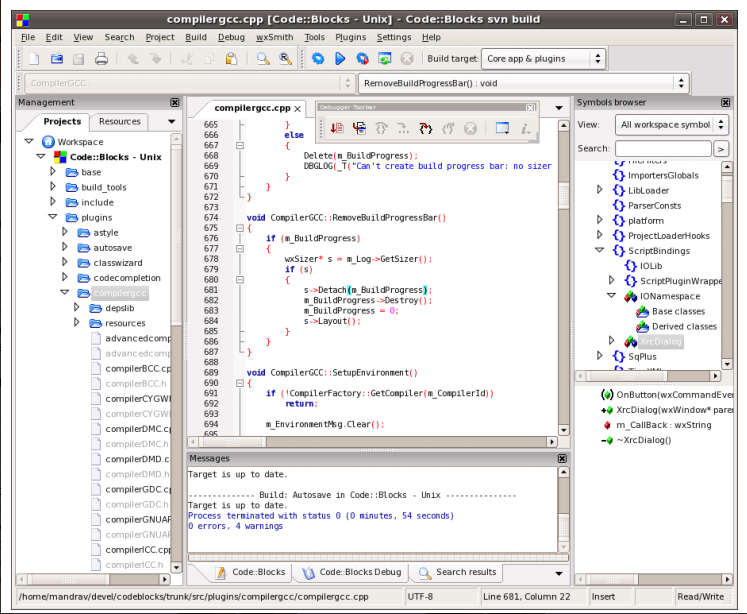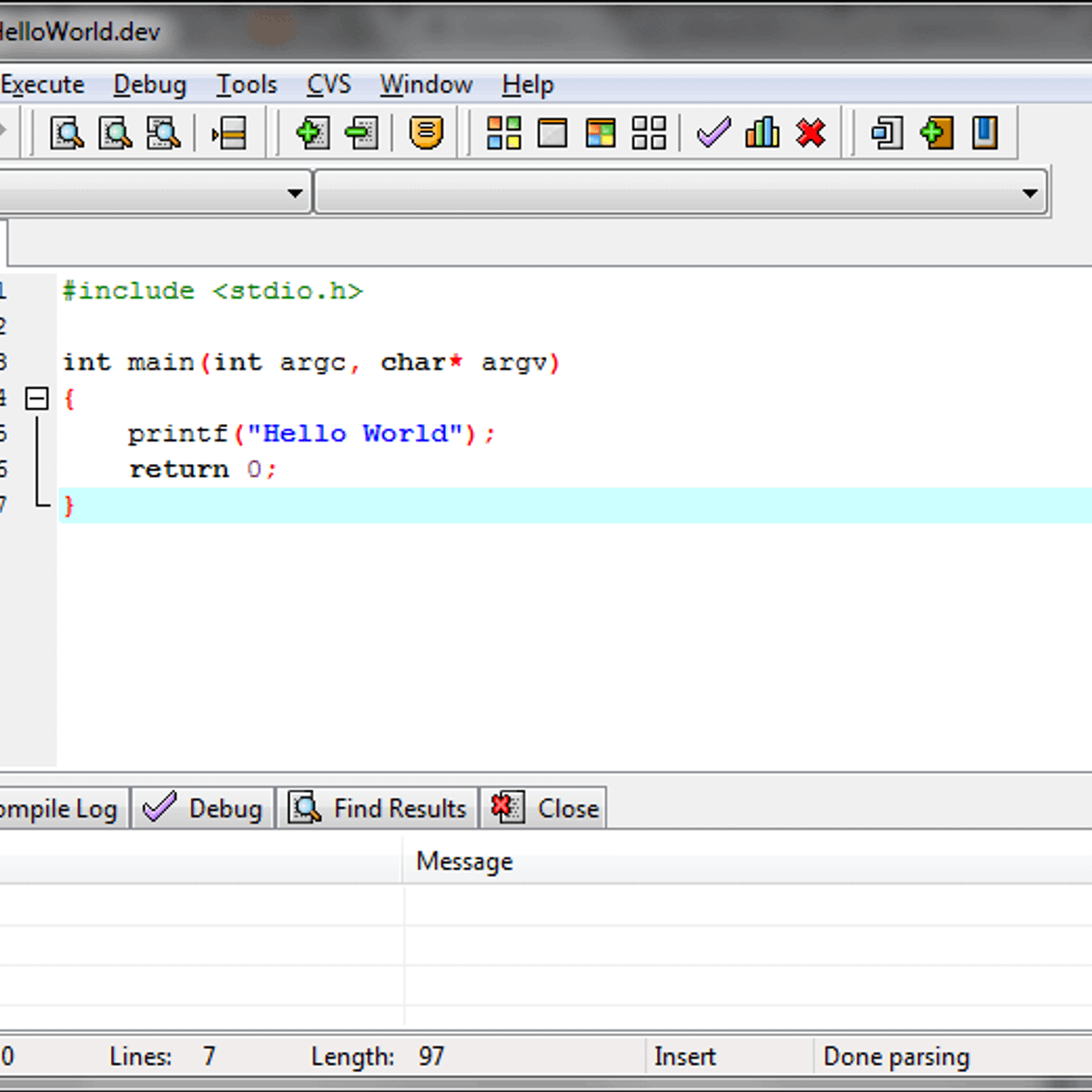Programs With Multiple Files Dev C++
- Dev C++ Programs
- Programs With Multiple Files Dev C Pdf
- Programs With Multiple Files Dev C Mac
- Programs With Multiple Files Dev C File
- C++ Basics
- C++ Object Oriented
- C++ Advanced
As programs get larger, it is common to split them into multiple files for organizational or reusability purposes. One advantage of working with an IDE is that they make working with multiple files much easier. You already know how to create and compile single-file projects. Adding new files to existing projects is very easy. Using C 11, Peggy covers the basics such as how to compile and run C programs, and how to create variables. She also dives into working with data, as well as decision statements, creating functions, and using arrays. To help you grasp the material, she challenges you to write programs that include the aforementioned features.
Jan 20, 2015 C programs have source code in several files. Skip navigation Sign in. Linking Multiple File Projects! C Tutorial 16. Projects with Multiple Source Files and Atmel Studio - Duration. When the program grows bigger, you usually delegate the task of calling the compiler only on the modified files and then run the linker to some kind of utility: many people use Makefiles, many just use an IDE that manages all the files in a project and automagically invokes the compiler and the linker just pressing a button. Jul 03, 2017 If you’ve ever scrolled through your list of installed programs in Windows, wondering why there are so many versions of the Microsoft Visual C Redistributable on there, you’re not alone. Join us as we take a look at what these things are and why there are so many installed on your PC.
How can I read multiple files in C in the same program? I have made a program to read pdb protein structures in C. The problem now is I have 230 such protein structures (in pdb format similar. Jun 15, 2011 Assist in developing an understanding the relationship between header and source files, learn the syntax associated with creating these files, and add additional compiler commands to the.
Dev C++ Programs
- C++ Useful Resources
- Selected Reading
Program comments are explanatory statements that you can include in the C++ code. These comments help anyone reading the source code. All programming languages allow for some form of comments.
C++ supports single-line and multi-line comments. All characters available inside any comment are ignored by C++ compiler.
C++ comments start with /* and end with */. For example −

A comment can also start with //, extending to the end of the line. For example −
Programs With Multiple Files Dev C Pdf
When the above code is compiled, it will ignore // prints Hello World and final executable will produce the following result −
Within a /* and */ comment, // characters have no special meaning. Within a // comment, /* and */ have no special meaning. Thus, you can 'nest' one kind of comment within the other kind. For example −
The most basic multi-module monster project in C programming has two source code files. Each file is separate — written, saved, and compiled individually — but eventually brought together as one unit by the linker. The linker, which is part of the build process in Code::Blocks, is what creates a single program from several different modules.
What’s a module?
A module is a source code file and its compiled object file. Together, the source code and object files are a module. Then the various object files are linked to build a program. The entire operation starts with separate source code files.
THE MAIN.C SOURCE CODE FILE
Exercise 1: Fire up a new project in Code::Blocks named ex2401. Create the project as you normally would: Type the source code from The main.c Source Code File into the editor as the contents of the main.c file. Save the file.
Don’t build yet! After all, the code references the second() function, which doesn’t seem to exist anywhere. It’s prototyped, as is required for any function that’s used in your code, but the second() function is found in another module. To create that module in Code::Blocks, follow these steps:
Save the current project, ex2401.
Choose File→New→Empty File.
Click the Yes button when you’re prompted to add the file to the active project.
The Save File dialog box appears.
Type alpha.c as the filename and then click the Save button.
The new file is listed on the left side of the Code::Blocks window, beneath the Sources heading where the main.c file is listed. A new tab appears in the editor window, with the alpha.c file ready for editing.
Click the alpha.c tab to begin editing that file.
Type the source code from The alpha.c Source Code File into the alpha.c file in Code::Blocks.
Save the ex2401 project.
Build and run.

THE ALPHA.C SOURCE CODE FILE
Programs With Multiple Files Dev C Mac
Here’s the output you should see in the test window on your computer:
The two source code files aren’t “glued together” by the compiler; each source code file is compiled individually. A separate object code file is created for each one: main.o and alpha.o. It’s these two object code files that are then linked together, combined with the C standard library, to form the final program.
Programs With Multiple Files Dev C File
The main module for a multi-module C program is traditionally named main.c. That’s probably why Code::Blocks names the first (and, often, only) project source code file main.c.
Only source code files contained within the same project — found beneath the Sources branch — are linked together.
To compile and link source code files in a terminal window, use the following command:
This command compiles the source code files main.c and alpha.c, links together their object files, and then creates as output (-o) the program file ex2401.